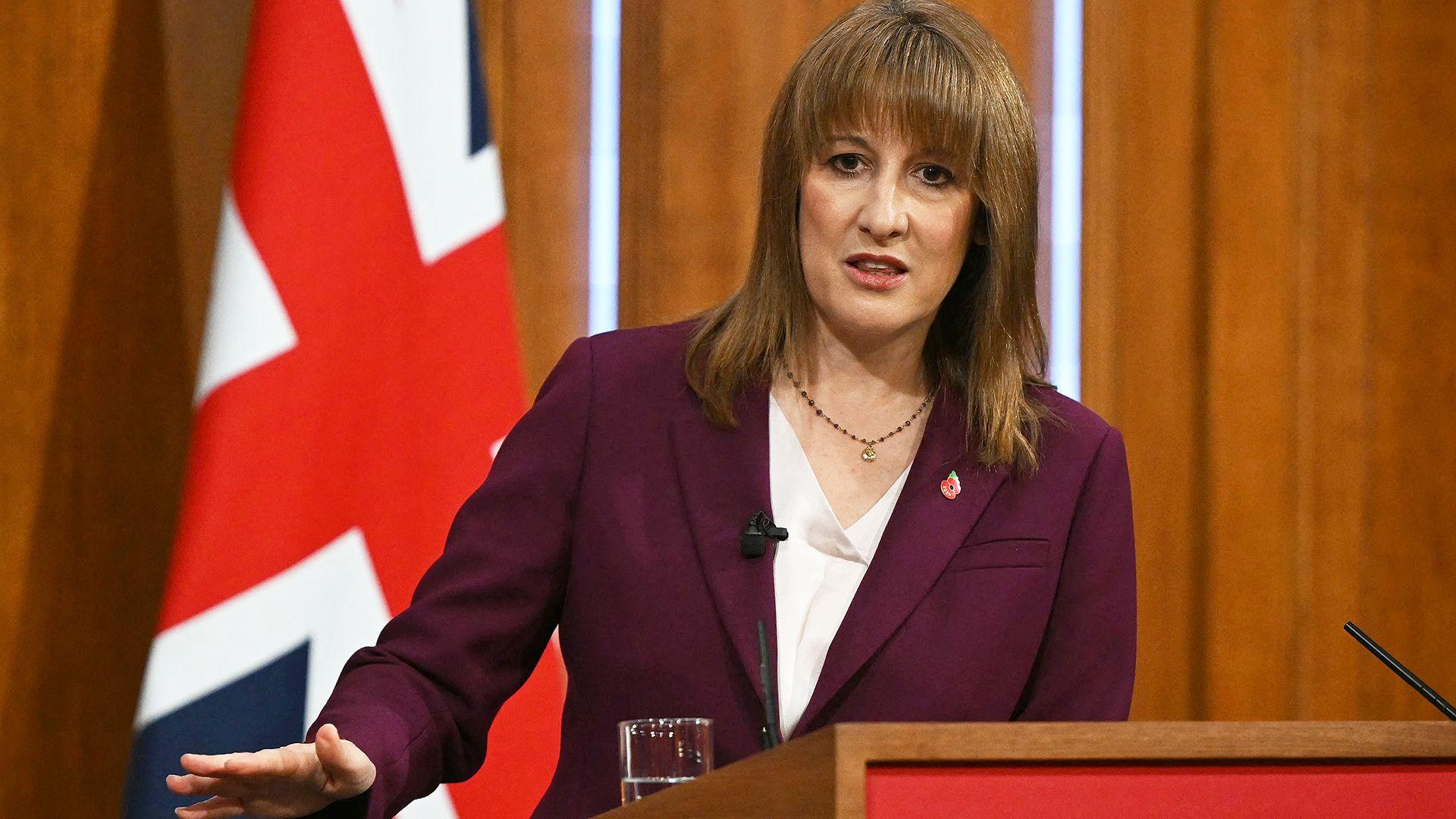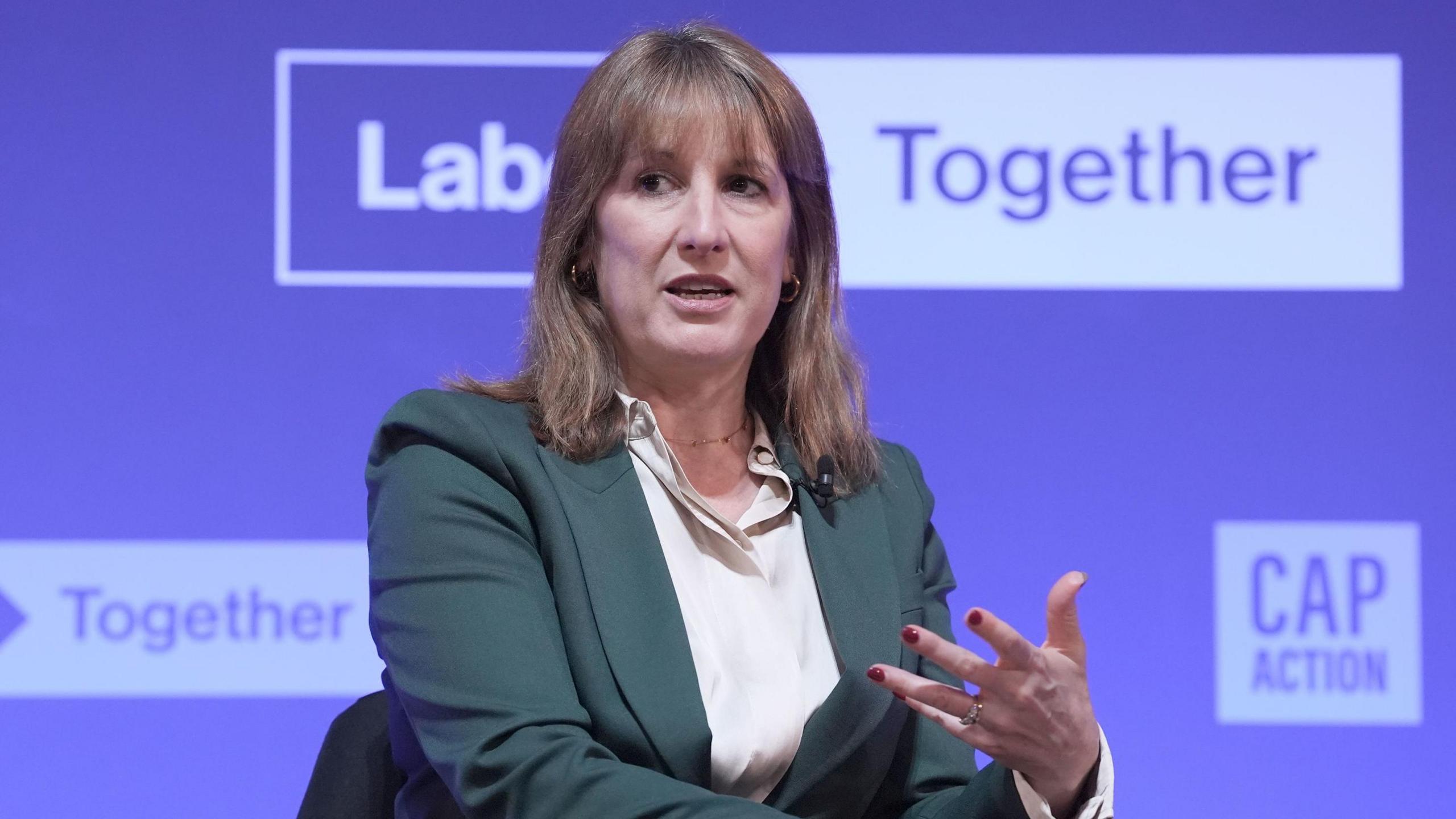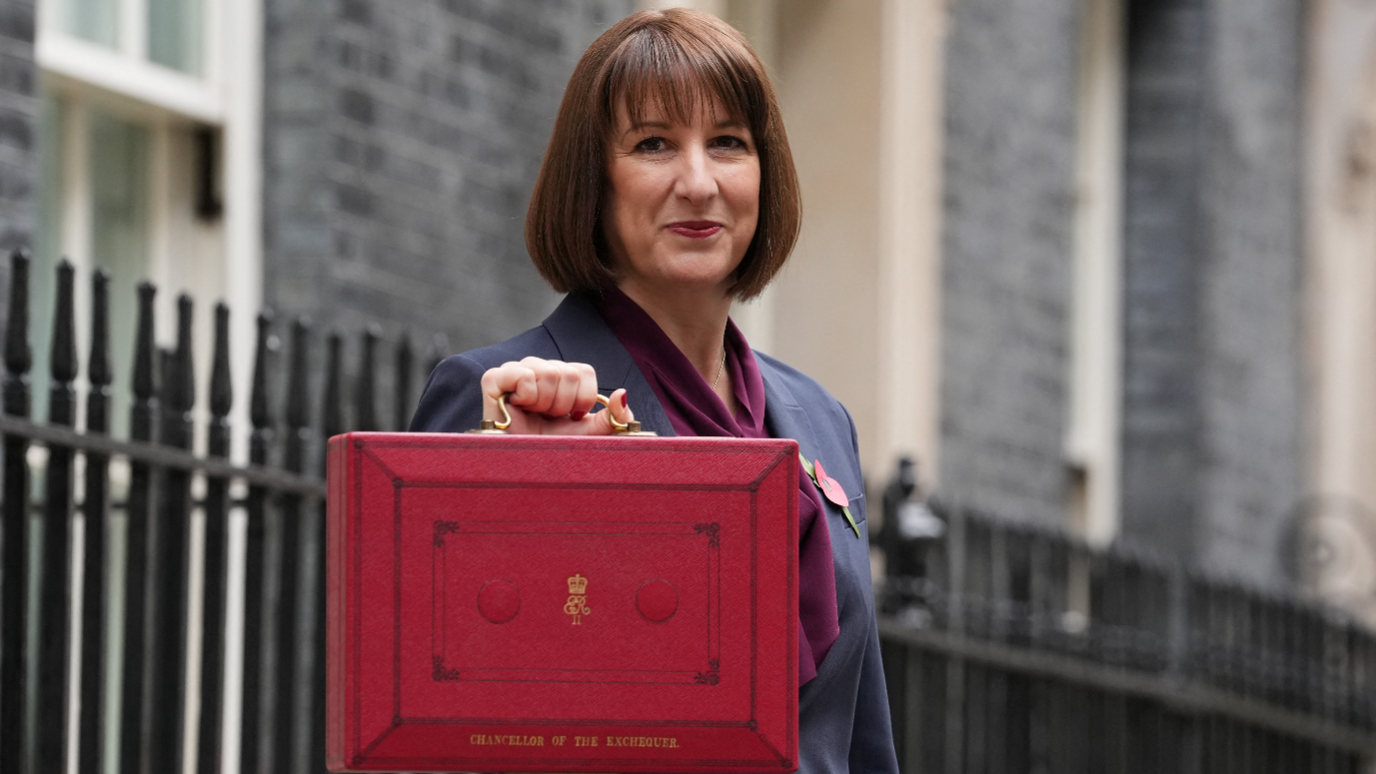Government borrowing costs jump after Reeves decides against income tax rise

- Published
UK government borrowing costs have risen sharply in reaction to news that the chancellor has decided against increasing income tax rates in the upcoming Budget.
The interest rate on 10-year government bonds, known as the yield, jumped from 5.44% to 5.56% in early trading, indicating the cost to government if it chose to borrow over this length of time.
The spike in yields reflected concern in the financial markets about how the government would meet its spending and borrowing commitments without an income tax rise.
But yields eased slightly later following news that the financial hole facing the government was going to be less than experts have been predicting.
The BBC understands the chancellor has not moved forward with a widely-reported proposal to increase income tax rates by 2p, while cutting National Insurance by the same amount, after receiving a better-than-expected forecast from the Office for Budget Responsibility (OBR).
The manifesto-breaching measure would have raised several billion pounds, and was sent to the OBR as an option earlier this month to be costed, to help fill what was then a £30bn gap in the public finances, mainly caused by a downgrade to productivity.
But more recent assessments from the OBR appear to have increased the projected strength of wages and tax receipts in the coming years and offset several billion pounds of that gap, taking it closer to £20bn.
Gilt markets reacted strongly on Friday morning to a Financial Times report, external that the chancellor was dropping the tax plan, but the markets eased slightly following news of the improved OBR forecast.
Ruth Curtice, chief executive of the Resolution Foundation - the think tank which first proposed the idea of raising income tax by 2p and cutting National Insurance by the same amount - said the latest Budget rumours risked exacerbating market movements.
"It is normal for economic forecasts and policies to change in the run up to the Budget. It is not normal for so much of that to be laid bare in public," she said.
"The market moves this morning and in recent weeks suggest a serious look should be taken at the approach to market-sensitive forecast information."
Oxford Economics' chief UK economist Andrew Goodwin said the episode showed the Budget would be a test of the market's confidence in the government's approach to finances.
"Smaller tax rises to tackle an apparently smaller problem aren't a good idea if markets don't believe the OBR's forecast is credible," he said.
He noted the OBR's forecasts have "consistently been too optimistic about growth, and if those forecasts were not fixed it would be "risky" for the chancellor to pin all Budget plans on them.
"There's a good chance that markets would conclude the problems aren't resolved and the government will be back in the same situation at the next fiscal event."
A Treasury spokesperson said: "We do not comment on speculation around changes to tax outside of fiscal events. The Chancellor will deliver a Budget that takes the fair choices to build strong foundations to secure Britain's future."
Reeves has previously confirmed that both tax rises and spending cuts are on the table for the Budget. The chancellor needs to find more money to meet her self-imposed "non-negotiable" rules for government finances.
The two main rules are:
Not to borrow to fund day-to-day public spending by the end of this parliament
To get government debt falling as a share of national income by the end of this parliament
Speaking before the reports of the improved OBR forecasts, Zeina Bain, managing partner at Sullivan Street Partners, said investors had steeled themselves for an income tax rise in the Budget, so the reports that the chancellor was not goign ahead with it had come as "a bit of a surprise".
The other issue for investors, Ms Bain said, was about how the government would fill its Budget black hole.
"Are you going to renege on filling that hole and fiscal responsibility?" she told the BBC's Today programme.
"That then leads into lower confidence which then feeds into higher bond yields, which then feeds into the cost of borrowing which leads to an even bigger hole."
Related topics
- Published6 minutes ago

- Published4 minutes ago
